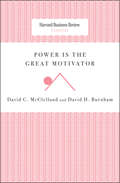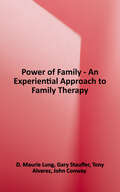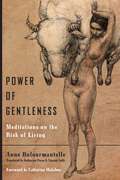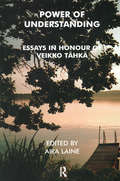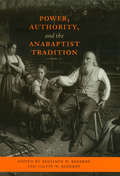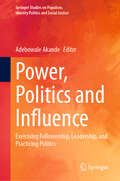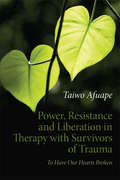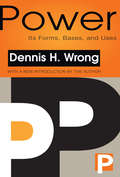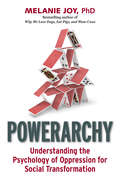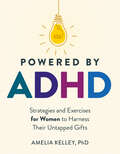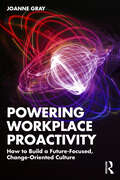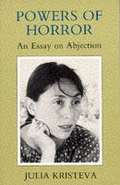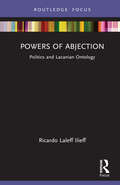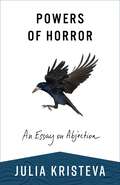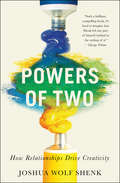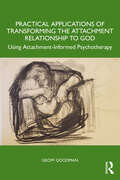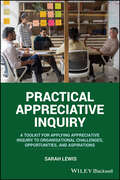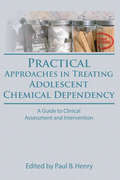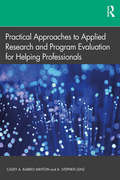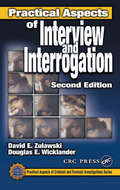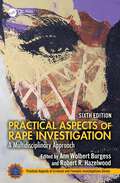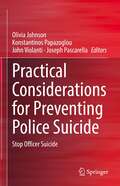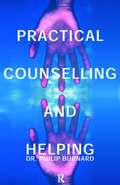- Table View
- List View
Power is the Great Motivator (Harvard Business Review Classics)
by David C. Mcclelland David H. BurnhamIn this exploration into the nature and value of power in organizations, the authors reveal how the drive for influence is essential to good management. They provide a wealth of counterintuitive insights about what using power really means to foster high morale and a strong sense of responsibility in the workplace.
Power of Family: An Experiential Approach to Family Treatment
by John Conway Gary Stauffer D. Maurie Lung Tony AlvarezThe authors invite you to explore the intentional use of interactive interventions as a primary methodology in family treatment. The activities they introduce into the therapy office provide an immediate context for witnessing how the family functions first-hand. In this manner, families reveal systems, structures, cognitive and emotional processes, strategies, communication styles, approaches to problem-solving, as well as other issues traditionally targeted in the process of family treatment. The intent is to provide an environment that allows family members to freely and genuinely demonstrate their strengths and limitations.
Power of Gentleness: Meditations on the Risk of Living
by Anne DufourmantelleGentleness is an enigma. Taken up in a double movement of welcoming and giving, it appears on the threshold of passages signed off by birth and death. Because it has its degrees of intensity, because it is a symbolic force, and because it has a transformative ability over things and beings, it is a power. The simplicity of gentleness is misleading. It is an active passivity that may become an extraordinary force of symbolic resistance and, as such, become central to both ethics and politics. Gentleness is a force of secret life-giving transformation linked to what the ancients called potentiality.In our day, gentleness is sold to us under its related form of diluted mawkishness. By infantilizing it our era denies it. This is how we try to overcome the high demands of its subtlety—no longer by fighting it, but by enfeebling it. Language itself is therefore perverted: what our society intends to give the human beings that it crushes “gently,” it does in the name of the highest values: happiness, truth, security.From listening to those who come to me and confide their despair, I have heard it expressed in every lived experience. I have felt its force of resistance and its intangible magic. In mediating its relation to the world, it appears that its intelligence carries life, saves and amplifies it.
Power of Understanding: Essays in Honour of Veikko Tahka
by Veikko TahkaThis book, published in honour of Veikko Tahka, represents the synthesis of his thinking based on more than forty years' experience as a clinician, researcher, teacher, and supervisor, concerning the nature of understanding, a debate in which the psychoanalytic model was used as an example.
Power, Authority, and the Anabaptist Tradition (Center Books in Anabaptist Studies)
by Benjamin W. Redekop and Calvin W. RedekopFounded in part on a rejection of "worldly" power and the use of force, Anabaptism carried with it the promise of redemptive power. Yet the attempt to banish worldly power to the margins of the Christian community has been fraught with dilemmas, contradictions, and, at times, blatant abuses of authority. In this groundbreaking book, Benjamin W. Redekop, Calvin W. Redekop, and their coauthors draw on classic and contemporary thinking to confront the issue of power and authority in the Anabaptist-Mennonite community. From the power relationships of the sixteenth-century Peasants' War to issues of contemporary sexuality, the topics of Power, Authority, and the Anabaptist Tradition are sure to interest a wide audience.Contributors: Stephen C. Ainlay, College of the Holy Cross • J. Lawrence Burkholder, President Emeritus, Goshen College • Lydia Neufeld Harder, Toronto School of Theology • Joel Hartman, University of Missouri • Jacob A. Loewen, missionary, retired • Dorothy Yoder Nyce, Writer and former Assistant Professor, Goshen College • Lynda Nyce, Bluffton College • Wesley Prieb (deceased), former dean, Tabor College • Benjamin W. Redekop, Kettering University • Calvin W. Redekop, Conrad Grebel College, emeritus • James M. Stayer, Queen's University, Ontario
Power, Politics and Influence: Exercising Followership, Leadership, and Practicing Politics (Springer Studies on Populism, Identity Politics and Social Justice)
by Adebowale AkandeThis book comprehensively explores the foundational principles of power, influence, and organizational politics, presenting actionable approaches for both employees and management to skillfully navigate these intricacies without succumbing to undue incivility, stress, or burnout. Power, as an imperceptible yet influential entity within organizations, steers the trajectory of decisions, behaviors, and the dynamic interplay between leaders and their teams. This book examines leadership theory and practice, offering a unique perspective on leadership styles, behaviors, and traits. In today's dynamic landscape, leadership capability and skill are important across sectors, influencing organizational health, political landscapes, and societal development. The book presents the challenges modern leaders face and how leadership theory can enrich workplace dynamics and beyond. Bridging the gap between academic research and practice, this volume offers guidance for aspiring and experienced leaders alike. From political skill to organizational culture, this book examines leadership from a multidisciplinary perspective. Scholars, students, and researchers of political science, business, management, economics, international relations, and psychology, as well as consultants, policymakers, and leaders interested in a better understanding of effective leadership concepts and the latest research in politics, policy, and participation in any setting, will find this resource invaluable.
Power, Politics, and Paranoia
by Jan-Willem van Prooijen Paul A. M. van LangePowerful societal leaders - such as politicians and Chief Executives - are frequently met with substantial distrust by the public. But why are people so suspicious of their leaders? One possibility is that 'power corrupts', and therefore people are right in their reservations. Indeed, there are numerous examples of unethical leadership, even at the highest level, as the Watergate and Enron scandals clearly illustrate. Another possibility is that people are unjustifiably paranoid, as underscored by some of the rather far-fetched conspiracy theories that are endorsed by a surprisingly large portion of citizens. Are societal power holders more likely than the average citizen to display unethical behaviour? How do people generally think and feel about politicians? How do paranoia and conspiracy beliefs about societal power holders originate? In this book, prominent scholars address these intriguing questions and illuminate the many facets of the relations between power, politics and paranoia.
Power, Powerlessness and Addiction
by Jim OrfordAddiction exercises enormous power over all those who are touched by it. This book argues that power and powerlessness have been neglected in addiction studies and that they are a unifying theme that brings together different areas of research from the field including the disempowering nature of addiction; effects on family, community and the workplace; epidemiological and ethnographic work; studies of the legal and illegal supply, and theories of treatment and change. Examples of alcohol, drug and gambling addiction are used to discuss the evidence that addiction is most disempowering where social resources to resist it are weakest; the ways in which the dominant discourses about addictive behaviour encourage the attributing of responsibility for addiction to individuals and divert attention from the powerful who benefit from addiction; and the ways in which the voices of those whose interests are least well served by addiction are silenced.
Power, Resistance and Liberation in Therapy with Survivors of Trauma: To Have Our Hearts Broken
by Taiwo AfuapeThis book offers reflections on how liberation might be experienced by clients as a result of the therapeutic relationship. It explores how power and resistance might be most effectively and ethically understood and utilised in clinical practice with survivors of trauma. Power, Resistance and Liberation in Therapy with Survivors of Trauma draws together narrative therapy, Coordinated Management of Meaning (CMM) and liberation psychology approaches. It critically reviews each approach and demonstrates what each contributes to the other as well as how to draw them together in a coherent way. The book presents: an original take on CMM through the lenses of power and resistance a new way of thinking about resistance in life and therapy, using the metaphor of creativity numerous case examples to support strong theory-practice links. Through the exploration of power, resistance and liberation in therapy, this book presents innovative ways of conceptualising these issues. As such it will be of interest to anyone in the mental health fields of therapy, counselling, social work or critical psychology, regardless of their preferred model. It will also appeal to those interested in a socio-political contextual analysis of complex human experience.
Power: Its Forms, Bases and Uses (Key Concepts In The Social Sciences Ser.)
by Dennis WrongIn one grand effort, this is an anatomy of power, a history of the ways in which it has been defined, and a study of its forms (force, manipulation, authority, and persuasion), its bases (individual and collective resources, political mobilization), and its uses. The issues that Dennis Wrong addresses range from the philosophical and ethical to the psychological and political. Much of the work is punctuated with careful examples from history. While the author illuminates his discussion with references to Weber, Marx, Freud, Plato, Dostoevsky, Orwell, Hobbes, Arendt, and Machiavelli, he keeps his arguments grounded in contemporary practical issues, such as class conflicts, multi-party politics, and parent-child relationships.In his new introduction, prepared for the 1995 edition of Power, the author reconsiders the concept of power, now locating it in the broader traditions of the social sciences rather than as a series of actions and actors within the sociological tradition. As a result. Wrong emphasizes such major distinctions as "power over" and "power to," and various conflations of power as commonly used. The new opening provides the reader with a deeper appreciation of the non-reductionist character of the book as a whole.
Powerarchy: Understanding the Psychology of Oppression for Social Transformation
by Melanie JoyHarvard-educated psychologist and bestselling author Melanie Joy exposes the psychology that underlies all forms of oppression and abuse and the belief system that gives rise to this psychology—which she calls powerarchy. Melanie Joy had long been curious as to why people who were opposed to one or more forms of oppression—such as racism, sexism, speciesism, and so forth—often stayed mired in many others. She also wondered why people who were working toward social justice sometimes engaged in interpersonal dynamics that were unjust. Or why people who valued freedom and democracy might nevertheless vote and act against these values. Where was the disconnect?In this thought-provoking analysis, Joy explains how we've all been deeply conditioned by the invisible system of powerarchy to believe in a hierarchy of moral worth—to view some individuals and groups as either more or less worthy of moral consideration—and to treat them accordingly. Powerarchy conditions us to engage in power dynamics that violate integrity and harm dignity, and it creates unjust power imbalances among social groups and between individuals. Joy describes how powerarchies—both social and interpersonal—perpetuate themselves through cognitive distortions, such as denial and justification; narratives that reinforce the belief in a hierarchy of moral worth; and privileges that are granted to some and not others. She also provides tools for transformation. By illuminating powerarchy and the psychology it creates, Joy helps us to work more fully toward transformation for ourselves, others, and our world.
Powered by ADHD: Strategies and Exercises for Women to Harness Their Untapped Gifts
by Amelia KelleyPractical strategies and exercises that empower women with ADHD to use their gifts for everyday successBacked by the latest research on the benefits that exist with having ADHD, Powered by ADHD is a practical road map for women to take charge and harness their enormous strengths and talents. With more than 20 years of experience working with neurodivergence, Dr. Amelia Kelley offers guidance, skills, and tools that emphasize flexibility and self-compassion to help women develop a positive self-image and see immediate results in all areas of life. Powered by ADHD features: A complete package for women with ADHD—grounded in the latest science and research; positive and motivating support; practical guides, tools, and strategies Practical guidelines to the top ADHD gifts, including how to effectively use these strengths to meet productivity and accomplish goals Real-life adult ADHD challenges and clear strategic solutions for key areas of a woman&’s life—work, home, relationships, finance, motherhood/caretaking, and more Step-by-step and easy-to-follow exercises that are designed to work with and for the ADHD brain
Powering Workplace Proactivity: How to Build a Future-Focused, Change-Oriented Culture
by Joanne GrayEmpowering, customizable, and backed by organizational research, this book introduces the PROACTIVE work design model and diagnostic tool to help organizations create optimal conditions for proactivity at work to flourish.The pressures and expectations of 21st-century life have led to short-term, reactive behavior in the workplace, however, long-term business success relies on proactive behavior, which is self-directed, future-focused, and change-orientated. But proactivity does not occur in a vacuum – it is a complex, social process heavily affected by contextual and situational factors. With its distinct and flexible design model, this book solves the problem of ‘how’ to create the optimal conditions for proactivity at work to flourish, and to drive sustainability and competitive advantage. And its diagnostic feature recognizes that readers are time-pressured and may already be doing some things well within their organizations, so it offers a solution to their problems without having to read the entire book before they can start making a difference. Uniquely, this book recognizes how important it is for leaders to shape the work environment and to be a positive role model to stimulate employee proactive behavior.Intended as a practical resource, this book provides a range of evidence-based tools and techniques and includes insightful case studies that will be useful for leaders, managers, HR professionals, OD practitioners, and consultants who want to drive proactive behaviors within their organizations.
Powers Of Horror: An Essay on Abjection
by Julia Kristeva Leon S. RoudiezPowers of Horror is an excellent introduction to an aspect of contemporary French literature which has been allowed to become somewhat neglected in the current emphasis on para-philosophical modes of discourse.
Powers of Abjection: Politics and Lacanian Ontology (Psychoanalytic Political Theory)
by Ricardo Laleff IlieffIn this book, Ricardo Laleff Ilieff presents a new ontological understanding of politics through the writings of Julia Kristeva’s notion of “abjection” in dialogue with Sigmund Freud’s concept of “Unheimlich” and Jacques Lacan’s ontology “du rél”.Aimed at those who are interested in the politics-psychoanalytic “praxis”, Laleff Ilieff argues that the abject enables one to critically read conceptual developments that are central to contemporary thought. Examining the abject in sacrifice, war, and the One as articulated by contemporary thinkers such as Walter Benjamin, Judith Butler, Carl Schmitt, RenéGirard, Pierre Clastres, Giorgio Agamben, and Jacques Rancièe, Laleff Ilieff argues that abjection does not operate on the margins of the social but is what unveils the failure of all identity.Powers of Abjection provides new questions and insights into the relation between psychoanalysis and politics and is an invaluable resource to students and scholars.
Powers of Horror: An Essay on Abjection (European Perspectives: A Series in Social Thought and Cultural Criticism)
by Julia KristevaIn Powers of Horror, Julia Kristeva offers an extensive and profound consideration of the nature of abjection. Drawing on Freud and Lacan, she analyzes the nature of attitudes toward repulsive subjects and examines the function of these topics in the writings of Louis-Ferdinand Céline, Marcel Proust, James Joyce, and other authors. Kristeva identifies the abject with the eruption of the real and the presence of death. She explores how art and religion each offer ways of purifying the abject, arguing that amid abjection, boundaries between subject and object break down.
Powers of Two: How Relationships Drive Creativity
by Joshua Wolf ShenkThe power of collaboration, from Lennon and McCartney to Wozniak and Jobs: &“An inspiring book that also happens to be a great read&” (Daniel H. Pink, author of Drive). Throughout history, partners have buoyed each other to better work—though often one member is little known to the general public. (See Warren Buffett and Charlie Munger, or Vincent and Theo van Gogh.) Powers of Two draws on neuroscience, social psychology, and cultural history to present the social foundations of creativity, with the pair as its primary embodiment. Revealing the six essential stages through which creative intimacy unfolds, this book shows how pairs begin to talk, think, and even look like each other; how the most successful ones thrive on conflict; and why some cease to work together while others carry on. At once intuitive and deeply surprising, Powers of Two will reshape the way you view individuals, relationships, and society itself. &“A rare glimpse into the private realms of duos . . . A natural storyteller.&” —The New York Times &“A book about magic, about the Beatles, about the chemistry between people, about neuroscience, and about the buddy system; it examines love and hate, harmony and dissonance, and everything in between . . . Wise, funny, surprising, and completely engrossing.&” —Susan Orlean &“We sometimes think of creativity as coming from brilliant loners. In fact, it more often happens when bright people pair up and complement each other. Shenk&’s fascinating book shows how to spark the power of this phenomenon.&” —Walter Isaacson &“Surprising, compelling . . . Shenk banishes the idea of solitary genius by demonstrating that our richest art and science come from collaboration: we need one another not only for love, but also for thinking and imagining and growing and being.&” —Andrew Solomon
Practical Applications of Transforming the Attachment Relationship to God: Using Attachment-Informed Psychotherapy
by Geoff GoodmanPractical Applications of Transforming the Attachment Relationship to God discusses four distinct attachment relationships to the God of personal spiritual experience and considers how each of these relationships has implications for working with clients in psychotherapy.Geoff Goodman uses Attachment-Informed Psychotherapy (AIP) to explore the connection between a relationship to God and a relationship to caregivers during childhood. By analyzing the attachment relationships evident in the lives of four public figures—human rights activist Coretta Scott King, Jewish Holocaust victim Anne Frank, Alcoholics Anonymous co-founder Bill W., and founder of psychoanalysis Sigmund Freud—this book demonstrates how their attachment relationships with their caregivers during childhood helped to determine the quality of their attachment relationship (or nonrelationship) to God in later life. Goodman demonstrates how to use AIP to work with these attachment relationships, formulating a psychotherapeutic treatment plan for each one with the goal of restoring wholeness and unity.This book will be a valuable resource for psychoanalysts, psychotherapists, and marriage and family therapists in practice and in training.
Practical Appreciative Inquiry: A Toolkit for Applying Appreciative Inquiry to Organisational Challenges, Opportunities, and Aspirations
by Sarah LewisCreate a shared vision built on core strengths and values to improve your organization Appreciative Inquiry (AI) equips leaders with a revolutionary approach to achieving positive organizational change. Rather than the traditional managerial method of first evaluating a problem and then proposing a solution, AI teaches you to ask, “What is going right here, and how can we grow more of it?” In Practical Appreciative Inquiry, expert organizational consultant and facilitator Sarah Lewis teaches you how to apply the AI methodology in an array of management situations. Step by step, this practice-oriented guide helps you leverage the versatility and flexibility of Appreciative Inquiry to make rapid, positive change. Covering all key aspects of AI, this concise yet comprehensive resource provides a wealth of ideas and activities designed to develop an AI leadership mindset, build resilience within your organization, motivate performance, increase team innovation, support change processes, create AI interventions, and much more. Each chapter features discussion questions, teaching exercises, links to online resources, and real-world case studies of AI in practice. Whether an experienced practitioner or a newcomer to change management, Practical Appreciative Inquiry: A Toolkit for Applying Appreciative Inquiry to Organisational Challenges, Opportunities, and Aspirations is a must-read for all leaders, managers, and team members wanting to improve their organization, as well as consultants, trainers, and organizational development experts interested in AI.
Practical Approaches in Treating Adolescent Chemical Dependency: A Guide to Clinical Assessment and Intervention
by Bruce Carruth Paul B HenryHere at last is a comprehensive volume on the often-ignored but vitally important subject of care for the chemically dependent adolescent. The most current treatment approaches are included, all focused on the unique needs of this population. For the first time, a book on adolescent chemical dependence illustrates, in a practical way, the major issues of on-going care--from intervention and assessment through aftercare and relapse. Written by professionals who have worked extensively with chemically dependent youth, Practical Approaches in Treating Adolescent Chemical Dependency will be appreciated by all in the field of chemical dependency--administrators, treatment directors, and certified addictions counselors, as well as by social workers, family therapists, school guidance counselors, and student assistance personnel.BACKCOVER COPY The treatment of alcoholism and drug use is a relatively young field that has developed only in the past 25 years. And as most of the expertise, efforts, and money have been targeted toward the chemically dependent adult population, the use and abuse of substances among young people has skyrocketed.Here at last is a comprehensive book on the often-ignored but vitally important subject of care for the chemically dependent adolescent. The most current treatment approaches are included, all focused on the unique needs of this population. For the first time, a book on adolescent chemical dependence illustrates, in a practical way, the major issues of on-going care--from intervention and assessment through aftercare and relapse. Written by professionals who have worked extensively with chemically dependent youth, Practical Approaches in Treating Adolescent Chemical Dependency features: a comprehensive overview of the dynamics of adolescence and the destructive impact that chemicals have upon kids a description of adolescents who are at risk for chemical dependency guidelines for making accurate assessments of chemically dependent adolescents successful programs and interventions that involve communities, schools, and families special insights into treating chemically dependent minority youth a review of the stages of recovery adapted to the developmental needs of adolescents a look at support groups that best facilitate the recovery process among adolescents much more
Practical Approaches to Applied Research and Program Evaluation for Helping Professionals
by Casey A. Barrio Minton A. Stephen LenzPractical Approaches to Applied Research and Program Evaluation for Helping Professionals is a comprehensive textbook that presents master’s-level counseling students with the skills and knowledge they need to successfully evaluate the effectiveness of mental health services and programs. Each chapter, aligned with 2016 Council for Accreditation of Counseling and Related Educational Programs (CACREP) standards, guides counseling students through study design and evaluation fundamentals that will help them understand existing research and develop studies to best assess their own applied research questions. Readers will learn the basics of research concepts as applied to evaluative tasks, the art of matching evaluative methods to questions, specific considerations for practice-based evaluative tasks, and practical statistical options matched to practice-based tasks. Readers can also turn to the book’s companion website to access worksheets for practitioner and student planning exercises, spreadsheets with formulas for basic data analysis, a sample database, PowerPoint outlines , and discussion questions and activities aligned to each chapter.
Practical Aspects of Interview and Interrogation (ISSN)
by Shane G. Sturman L. Wayne Hoover David E. Zulawski Douglas E. WicklanderBuilding on the foundation of the bestselling first edition, Practical Aspects of Interview and Interrogation, Second Edition expands its coverage to include discussions of false confessions, telephone interviewing, field interviewing, sexual harassment interviewing, confronting the alleged harasser, pre-employment interviewing, new legal aspects, juvenile interviewing, common mistakes, and frequently asked questions. Useful in both the law enforcement and private sectors, this work allows readers to deal effectively with the complex problems of interviewing and interrogating victims, witnesses, suspects, and even prospective employees.
Practical Aspects of Rape Investigation: A Multidisciplinary Approach, (Practical Aspects of Criminal and Forensic Investigations)
by Robert R. Hazelwood Ann BurgessThe latest sixth edition of Practical Aspects of Rape Investigation is a fully updated, comprehensive volume on investigative procedures and victim-oriented case management for professionals assisting victims of rape and sexual assault.Rape and sexual assault cases have a devastating societal impact, particularly among the vulnerable populations most affected, including women, children, the elderly, minorities, and members of the LGBTQ+ communities. Such cases are all too common and, unfortunately, the number of cases continues to rise. As such, the need for a current reference on the topic has never been more pressing.Edited by Ann Wolbert Burgess—the subject of Hulu’s 2024 documentary series Mastermind: To Think Like a Killer, and an internationally recognized researcher and pioneer in the assessment and treatment of victims of trauma and abuse—this book covers various topics contributed to by experts from a broad range of fields. Leading academics, researchers, and investigative professionals address the problem of rape and sexual assault holistically, focusing on the core principles of real-world investigative techniques, behavioral profiling, investigative strategies and techniques, social worker involvement, and victimology.When a rape case goes undetected or unreported, a violent offender remains on the streets with the opportunity to reoffend—often repeatedly. Because victims are frequently reluctant to speak out or act in such cases, this book aims to raise awareness and, ultimately, decrease the number of silent victims and improve rape-investigative capabilities and outcomes.Practical Aspects of Rape Investigation, Sixth Edition provides the essential tools and techniques for professionals to best serve, and advocate for, victims. It continues to serve as an invaluable reference for students, legal professionals, and case managers, and as a blueprint for investigators and law enforcement professionals on case management best practices.
Practical Considerations for Preventing Police Suicide: Stop Officer Suicide
by Konstantinos Papazoglou Olivia Johnson John Violanti Joseph PascarellaThis book takes an in-depth look at the phenomenon of police officer suicide. Centered on statistical information collected from cases of officer suicide from 2017 to 2019, this volume helps readers understand the circumstances surrounding death by suicide amongst law enforcement personnel and makes recommendations for identification and prevention. Through interview and case presentations, this volume examines the lives and last days and weeks of several officers, using findings from social media, departmental surveys, medical examiner reports, toxicology reports and interviews with loved ones and colleagues to create a psychological autopsy. With 14 chapters contributed by former law enforcement, researchers, and mental health professionals, it addresses national, state, and local policy implications and strategies, presenting a theory for better understanding and preventing the phenomenon of officer suicide. This volume will be of interest to researchers in policing, to law enforcement and first responder leadership and administrative professionals, and to mental health practitioners and clinicians working with this unique population
Practical Counselling and Helping
by Philip BurnardPractical Counselling and Helping is a practical, jargon-free guide to counselling. It offers clear information about how counselling and helping may be put into practice, whilst acknowledging and discussing its limitations.Contents include:* what is counselling and helping?* basic counselling and helping strategies* handling difficult situations* further personal development.Drawing from a range of counselling methods, and offering a useful and detailed reading list, Practical Counselling and Helping will appeal to all students in the health professions and to all those professionals requiring a clear account of how they might improve their own communication skills.
